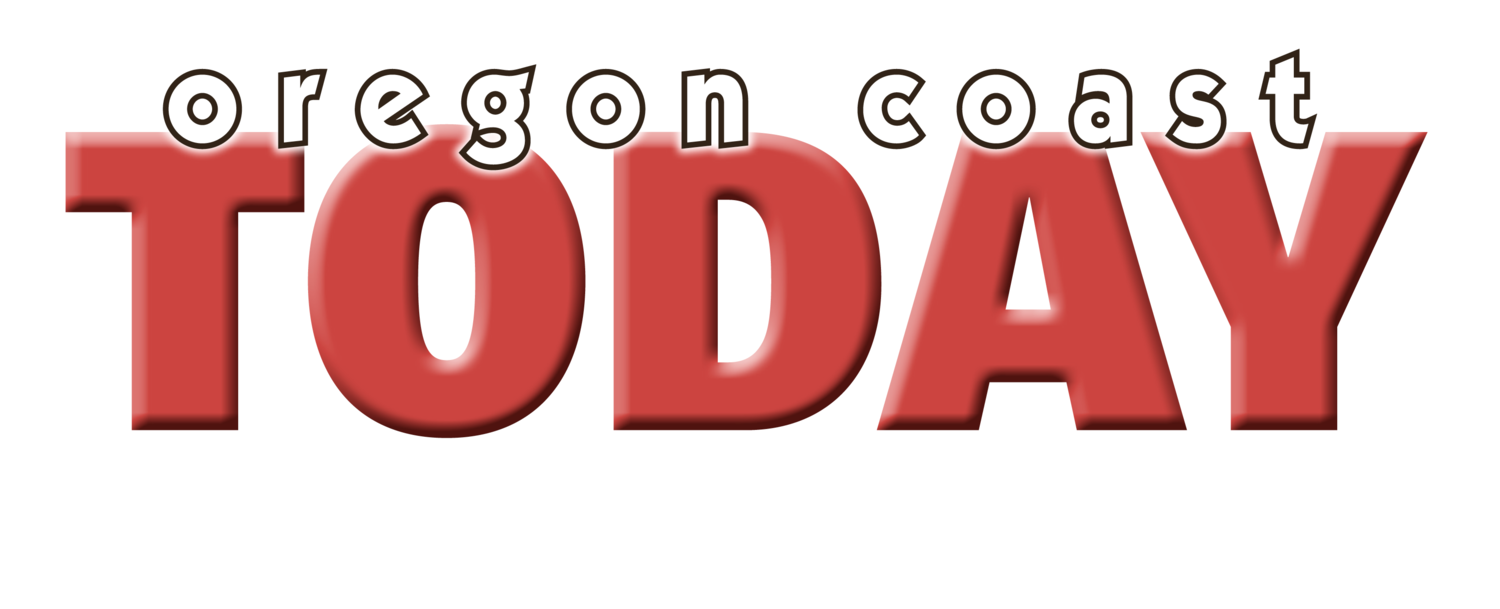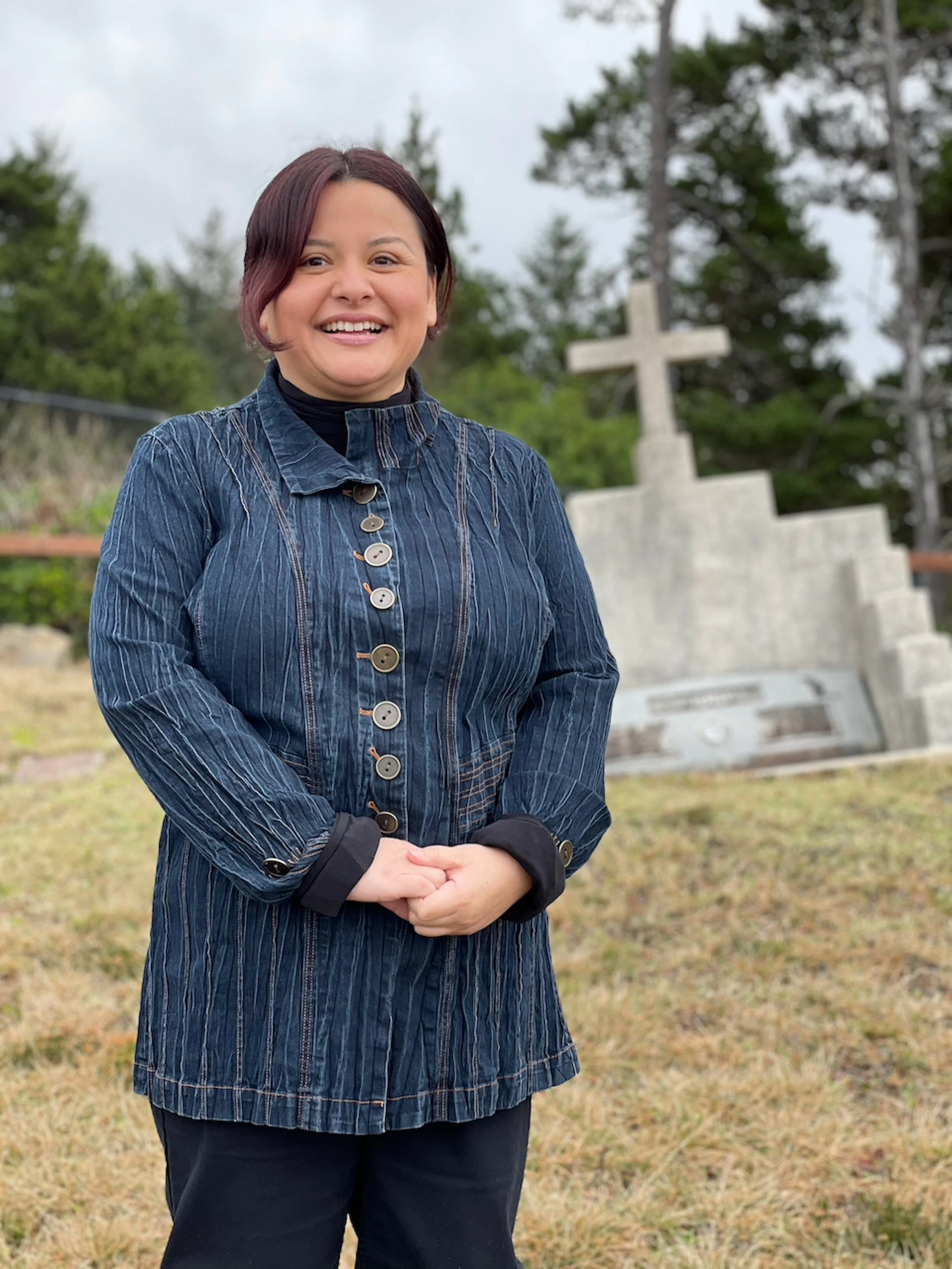Death Cafe is getting grave reviews
By Gretchen Ammerman
Oregon Coast TODAY
Since the end of last year, Lincoln City’s Driftwood Public Library has been hosting a virtual Death Cafe, facilitated by Death Doula Crystal Akins. Since that first sentence begs at least one question, I sat down with Akins and she walked me through what a death doula does, what got her started doing such work and what kind of things happen at a Death Cafe.
Q: I’ve usually heard of a doula as being part of the process of childbirth; what does a death doula do?
A: We support the dying and their family spiritually, emotionally and socially. Different doulas describe it different ways, but that’s the main thing.
Q: Isn’t that the same thing as hospice?
A: We don’t do hospice, we work alongside hospice. We are there earlier, and can help the family with pre-planning. When people really need a death doula is inbetween a terminal diagnosis, and when it’s close enough to the end for hospice to step in. I do a death walk with them, and facilitate grief and loss counseling for families. I’m a huge advocate for pre-planning because that can make the whole process better for both the dying and their families, before, during and after.
Q: I understand you also are working to fill the space left by the fact that hospice can’t go to people unless they have a physical address or there is space in a hospice facility?
A: When people die in poverty, it looks different then when people die with privilege. I’m working to build one of the first death doula care spaces in the state with an organization called Do Good Multnomah, so homeless veterans have a safe space to die.
Q: So, what goes on in a Death Cafe?
A: I have no intention other than holding a safe space. It’s not counseling, it’s just a place for people to connect around this one thing; basically creating a community around death, dying and grief. Some people will come because they have no one else to talk to about these things. Talking about death reminds us of our human connection, and what I notice in death work is that we don’t have our armor on, and when we don’t, we can really connect with each other, regardless of all the different identities we have. What we do, what we are afraid of; all those things go away. At Death Cafe we are talking about something we are all going to go through and that we are all afraid of, so we can all connect in that space. It has been well attended so far and we’ve had a great variety of people.
Q: What got you started doing death work?
A: In 2014, my daughter Alberta was born, and that same year 11 people in my life died. While I was experiencing this beautiful thing, this new life, I had to deal with so much death. It made me realize how closely connected life and death are.
My family and friends hadn’t planned and I didn’t know what this kind of grief was going to feel like; it was very intense. I was not doing well at work and I felt bad about the ways that I wasn’t able to show up for my life. Once I got some help, it was as simple as someone else saying, “Oh yeah, I’ve been through that too,” and that was all I needed.
I also got to experience how much funerals can be not representative of the person who passed because they didn’t talk it through ahead of time with someone.
I can’t go back and change how my family and friends died, but I can help people that are going through it now. It’s my way of honoring those people in my life that have passed.
Q: Tell me a little more about yourself.
A: I’m an arts activist, and that’s actually what got me into doing death work. I actually started by doing music therapy work, but that was before I lost my own family and friends. I graduated from Marylhurst University, and my disciplines are art, music, conducting, music therapy, counseling and education. My non-profit is called Activate Arts, and we get grants to support arts projects for all ages.
A: When you use the word spirituality, are you referring to any particular faith?
Q: I am what is called an interfaith worker. I grew up with different religions and backgrounds, but there was always love and mutual respect. We get folks at the cafe who are from all kinds of religious backgrounds, including non-religious, and it leads to interesting discussions about faith, what happens when you die, and how what we all believe may be different, but if it brings us a sense of comfort, it is worth respecting.
Q: Any last words?
A: Those of us that do death work really come to value life. For people that come to the cafe, we find that even talking about death encourages you to live your life in a different way.
The Death Cafe meets via Google Meet every first and third Tuesday of the month at 5 pm. To register, email
EmbraceDeathDoulaCare@gmail.com or text 503-358-6143.

